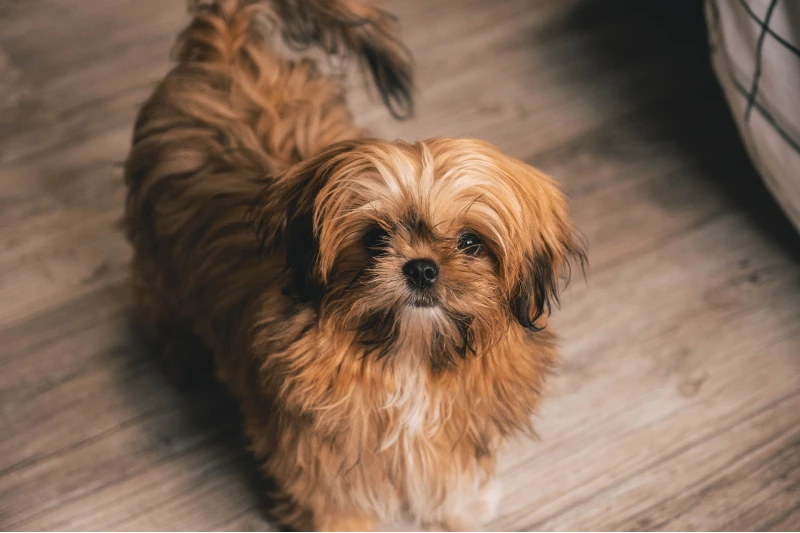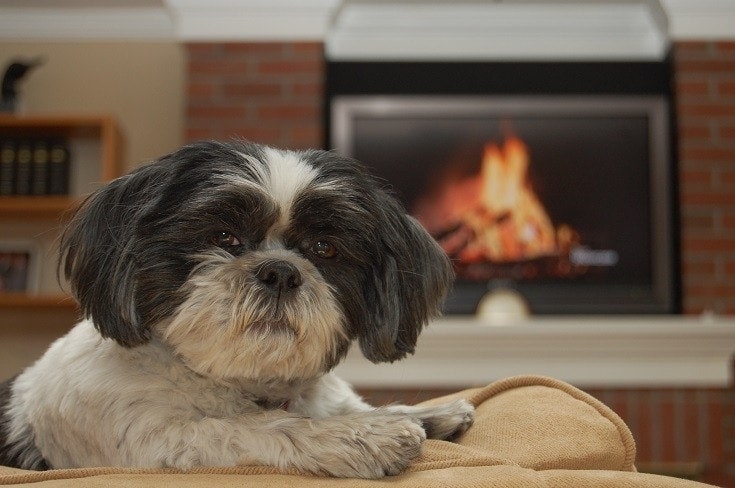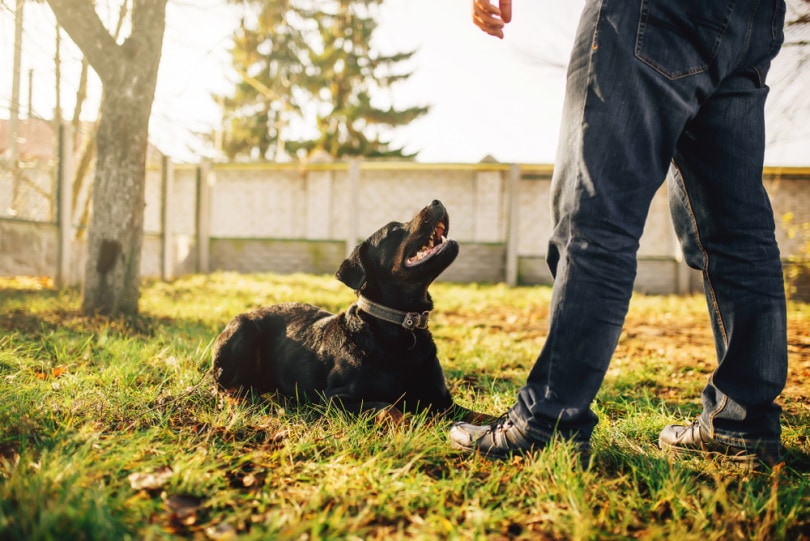Can a Shih Tzu Be Left Alone? 6 Vet-Approved Tips To Make Them Feel Comfortable
Updated on

Shih Tzus make fantastic pets thanks to their affectionate temperament and natural inclination to be lap dogs. However, since this breed can become so attached to their humans, you might wonder if leaving a Shih Tzu alone while you go to work is okay. While some Shih Tzus do well being left alone for hours, others may not.
The good news is, with patience and training, most Shih Tzus can learn to stay home comfortably during normal working hours. Keep reading to learn more about leaving your Shih Tzu home alone and what you can do to make this time alone as comfortable as possible.
Can Shih Tzus Stay Home Alone?
Yes, Shih Tzus can stay home by themselves. Unfortunately, however, they tend to be so affectionate and attached to their owners that some may not do well when they’re not in their presence. So, let’s take a look at some things to consider before leaving your pup on their own.
Age
If it’s possible, it’s best to time your Shih Tzu puppy adoption during a time you’ll be able to stay home with them almost 24/7. Young pups shouldn’t be left alone for more than an hour or two. Being alone requires the gradual development of self-confidence and the skills necessary to self-soothe and be independent to prevent behavioral and bathroom issues. It will take several months for you to hone your dog’s toilet skills, so you must be at home as much as possible during those critical few months.
You can begin gradual training when your dog is around four months or when you feel they have confidence and a better handle on potty training. Older Shih Tzus can be left alone for seven or eight hours at a time.

Behavioral Problems
Shih Tzus get very attached to their owners as they are their entire world. While this is sweet in theory, it’s not the greatest for dog owners who need to be out of the house for part of the day. Your pup may feel stressed and anxious when you’re not around, which can lead to many issues.
A Shih Tzu suffering from severe separation anxiety can become very destructive. This behavior isn’t out of spite or a way for your dog to punish you for leaving them alone, but it stems from their fear and anxiety.
The 6 Tips for Helping Your Shih Tzu Stay Home Alone
It’s not realistic to stay home with your Shih Tzu 24/7/365, so unless you’re planning on taking them to a doggy daycare every time you leave home, they will eventually need to learn to be on their own some of the time. Let’s look at some helpful tips for training your pup to stay home alone.
1. Start With Gradual Departures
You can’t expect your Shih Tzu to go from having you around every day all day to not seeing you for hours on end and not struggling with it. Once you feel they have the confidence to stay home alone for a few hours at a time, start with leaving home for just 15 minutes and gradually work your way up from there.

2. Create a Routine
Keeping a routine with your departure and return times can allow your dog to become accustomed to what’s happening and provide them with some sense of control. Your goal is to create a situation where your pup feels safe, comfortable, and familiar before you walk out the door.
Before you depart, feed your pup, take them for a walk, and give them a potty break half an hour or so before you leave to ensure their basic needs are all taken care of. However, doing these activities minutes before you go may make your dog associate them with your absence and cause anxiety any time you’re getting ready to feed them or take them for a walk.
When it’s time to go, put on your shoes and coat, and give your dog a special treat before you leave. We recommend a treat that takes a while to eat, such as a puzzle toy stuffed with peanut butter. Your pup will eventually start associating your leaving with the reward they get.
3. Leave & Come Home Without Fanfare
Don’t make a huge deal every time you leave home or come back. Keep it low-key, so your Shih Tzu will never think that your presence (or lack thereof) is a huge event. Don’t give them much attention when you return home for the first few minutes. This helps to reinforce the relaxed behavior, so your pup won’t connect your arrival home with attention.

4. Set the Mood
Music or white noise may help alleviate your dog’s stress when alone. Studies show that dogs who listen to classical music will spend more time sleeping and less time vocalizing than if they listened to other types of music or none at all.
There are many dog-friendly playlists on Spotify that you can turn on when you leave. You might also consider investing in a speaker like the Pet Acoustics Pet Tunes, which is pre-loaded with calming, frequency-modified music to reduce stress and calm nerves, although scientific evidence supporting the efficacy of such devices is lacking.
If you come home after the sun has set, leave a light or two on, as a darkened home might cause additional stress.
5. Prepare Your Pup’s Space
Ensure your dog has everything they need before you leave home, such as food, water, toys, and a cozy place to sleep. As mentioned above, a treat-release toy like a Kong is a great way to distract your pup from your departure and keep it busy for a while, too. Leave out an article of your clothing so your dog can have your scent nearby.

6. Know When to Ask for Help
Your vet or dog trainer will be your best point of contact for any behavior-related questions. A vet may recommend medication or supplements if your dog develops signs of separation anxiety. A trainer, like a Certified Separation Anxiety Trainer, can teach you the tricks you need to know to make leaving home easier for your dog.
Conclusion
Dogs are happiest in the presence of their owners, and Shih Tzus especially so. But, of course, this is not possible 100% of the time. There will be times when you leave to go grocery shopping, and it would be nice not to return home to a stressed-out doggy or a destroyed living space. Our tips above should help ease your Shih Tzu into spending some time alone safely and comfortably. Don’t hesitate to contact your vet or canine behaviorist for advice if the tips above aren’t helping or your dog is displaying signs of anxiety.
See Also:
Featured Image Credit: Steshka Willems, Pexels













